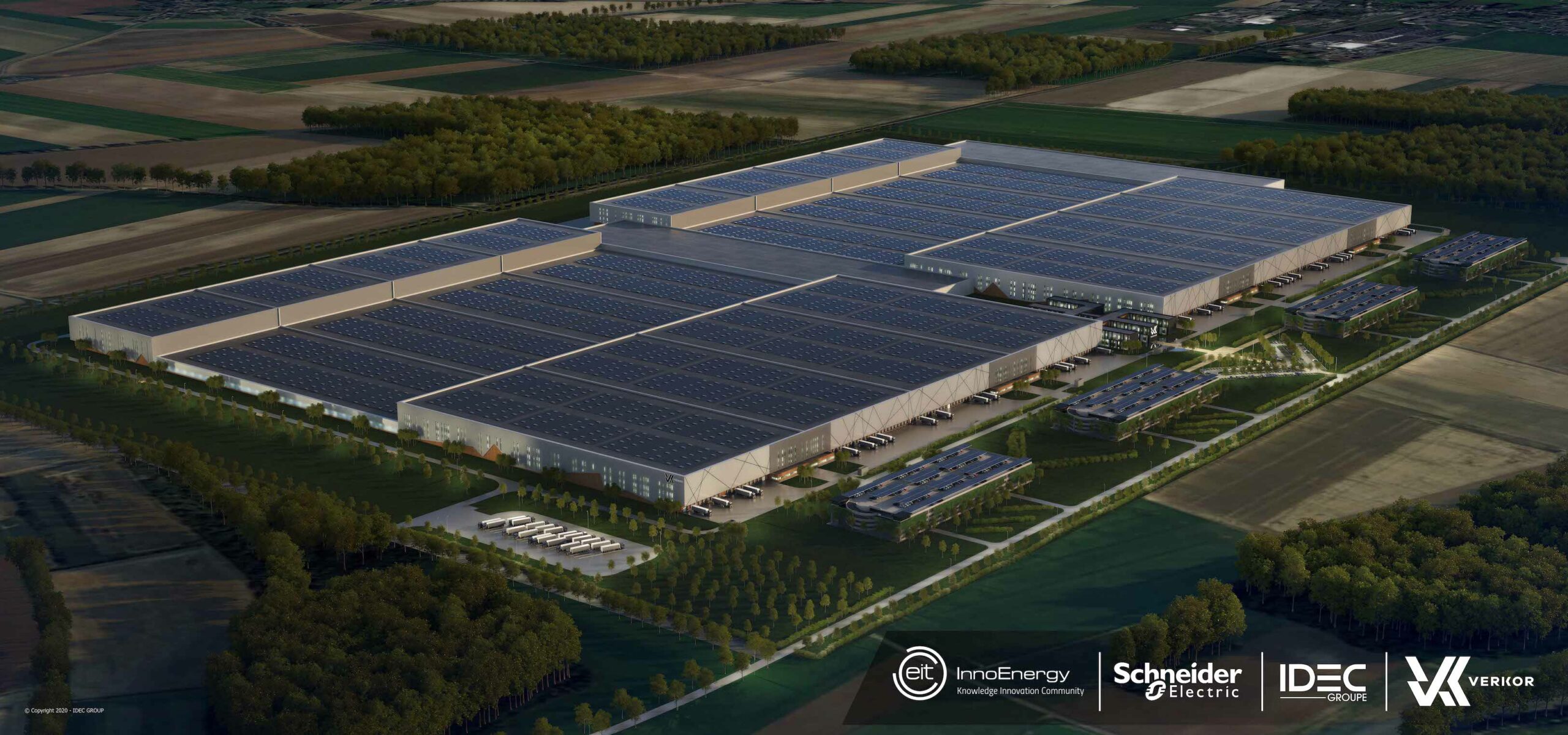
Lithium battery cells will be rolling off a production line at a 16GWh-capacity factory in France in 2023, with manufacturing startup Verkor then planning to scale up to 50GWh “in line with market dynamics”.
Suitable land for the first Verkor factory is currently being sought, with over 200 hectares expected to be required, while the company’s partners in the project include French planning, development, investment and construction company IDEC Groupe and technology and engineering provider Schneider Electric. Verkor’s batteries are expected to be designed to supply the electric vehicle (EV) and stationary storage sectors.
Enjoy 12 months of exclusive analysis
- Regular insight and analysis of the industry’s biggest developments
- In-depth interviews with the industry’s leading figures
- Annual digital subscription to the PV Tech Power journal
- Discounts on Solar Media’s portfolio of events, in-person and virtual
“Our team is made up of industrial entrepreneurs who have accumulated vast experience in the field, especially in battery-cell manufacturing. We are multinational and growing fast with the addition of new talent from all over the world. We are working in an agile, fast-follower mode to bring locally manufactured, low-CO2 battery cells to the market,” Verkor CEO Benoit Lemaignan said.
“Combined with the expertise of our strategic partners, I am confident that we are aligning the winning conditions to start the construction of a highly efficient manufacturing Gigafactory in 2022, deliver our first cells in 2023, and stepping up of industrial activities, key to accelerating low carbon mobility in Europe.”
Plans for battery and battery system gigafactories are being announced regularly across the continent at present, with the European Commission supporting the creation of a manufacturing ecosystem including through the European Battery Alliance consortium. Plans announced so far include those from overseas providers such as CATL, Tesla and LG Chem, as well as Europe-headquartered outfits such as Northvolt, AKASOL and others.
Verkor is developing its gigafactories in southern France, with around €1.6 billion (US$1.9 billion) of investment expected to be required to finance the first facility, creating more than 2,000 jobs. The project is being supported by EIT InnoEnergy, a European Institute of Innovation and Technology (EIT) investment and accelerator ‘engine’ focusing on sustainable energy.
EIT InnoEnergy is also the main agency leading the European Battery Alliance and Northvolt – which this week announced that financing for, and investment in, its 60GWh of plants has so far surpassed US$3 billion – is among the many companies it has helped along the way already. There is an expectation, highlighted in EIT InnoEnergy’s press release on the Verkor announcement, that demand in Europe for batteries for electric vehicles (EVs) and stationary storage will continue to outstrip supply for some time to come.
EIT InnoEnergy said that southern Europe in general is lacking in many of the recent battery plans, with Northvolt building in Sweden and Germany, Tesla, LG Chem and CATL in Germany, startup Freyr announcing a plan for Norway and even Britain getting tentative plans to build a ‘gigaplant’ from another startup, called BritishVolt.
In addition to that geographic imbalance, other reasons for supporting Verkor’s French plant plans include the availability of low-carbon electricity at low cost – primarily from France’s nuclear plants – as well as the siting of “prominent automotive manufacturers” and “leading energy providers” in the country.
“The first Verkor Gigafactory will help bridge the gap between Europe’s planned demand and currently forecasted European supply in this decade. Verkor’s unique value proposition on manufacturing optimisation and excellence is welcome. The strategic partnerships they are building make us confident that Verkor will deliver,” EIT InnoEnergy CEO Diego Pavia said.
“Coupled with the Covid recovery, the initiative will further accelerate the French and European battery value chain, from mining to recycling, and boost the growth of hundreds of businesses across France and Europe.”
Pavia added that EIT InnoEnergy and the European Battery Alliance are “on a mission to achieve a sustainable battery chain in Europe,” claiming that siting a gigafactory in France could result in batteries that “have a carbon footprint nearly four times lower than that of China”.
Funding for R&D initiatives at ‘Australia’s first utility scale Li-ion battery producer’
Meanwhile on the other side of the world, the company aiming to become “Australia’s first utility-scale Li-ion battery manufacturer” has netted a co-funding grant from the country’s national Advanced Manufacturing Growth Centre (AMGC).
Back in June 2017, Energy-Storage.news reported on plans by renewable energy company Energy Renaissance to build a 1.3GWh annual capacity lithium-ion battery storage manufacturing plant in Darwin, Northern Territory, called ‘Renaissance One’.
The plan now appears to have changed somewhat, with Energy Renaissance now promising to reveal the location and more details of Renaissance One later this year. It said in a press release yesterday that AGMC’s funding of around AU$250,000 will be matched by the company and will aim to grow Australia’s capabilities to produce lithium-ion batteries suitable for hot temperatures. Energy Renaissance also wants to export as much as 60% of its batteries, which it thinks could add AU$3 billion to Australia’s GDP.
That latest funding will be used to accelerate R&D activities in battery design and Energy Renaissance will work in those areas with existing partners Cadenza Innovation and Wuxi LEAD.






